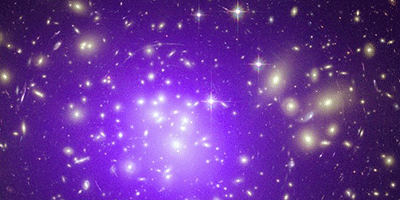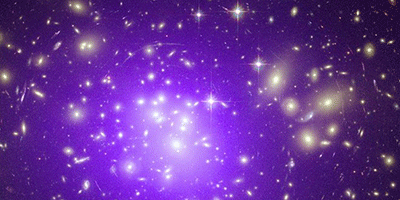Lumpy Universe Called into Question
The Universe seems to be expanding at an accelerating pace, but perhaps that’s only from our perspective. If the Universe is very lumpy and we just happen to live in a relatively empty part, then the imbalance in gravitational forces could mimic a universal acceleration. However, a new analysis in Physical Review Letters shows that an inhomogeneous Universe cannot explain galaxy cluster observations.
A common assumption in cosmology is that the Universe is uniform on large scales. If so, then the observed acceleration implies some form of dark energy pushing galaxies apart. However, no one really understands dark energy very well, so some cosmologists toy with the idea of dropping uniformity. In these lumpy Universe models, our region of the Universe is surrounded by denser regions that pull galaxies towards them, thus giving us the impression of a uniform acceleration. Recent work suggests that a lumpy Universe is consistent with the expansion history of the Universe coming from supernovae data.
But there are other constraints on cosmological expansion, notably the growth of galaxy clusters. Observations show that, as the Universe ages, clusters grow more massive by gravitationally capturing additional matter and galaxies, but the growth rate is much slower at later times. The usual interpretation is that this slowdown is caused by dark energy preventing further capture, but Mustapha Ishak and colleagues from the University of Texas at Dallas have, for the first time, looked at whether a lumpy Universe could explain the cluster growth data. The team showed that suppression doesn’t occur in a generic lumpy Universe model. Instead, their results imply that the repulsive force of dark energy is needed to slow down cluster growth. – Michael Schirber
Correction (30 December 2013): The teaser was changed to clarify that the research questions the lumpy universe picture as an explanation for cosmic expansion.





